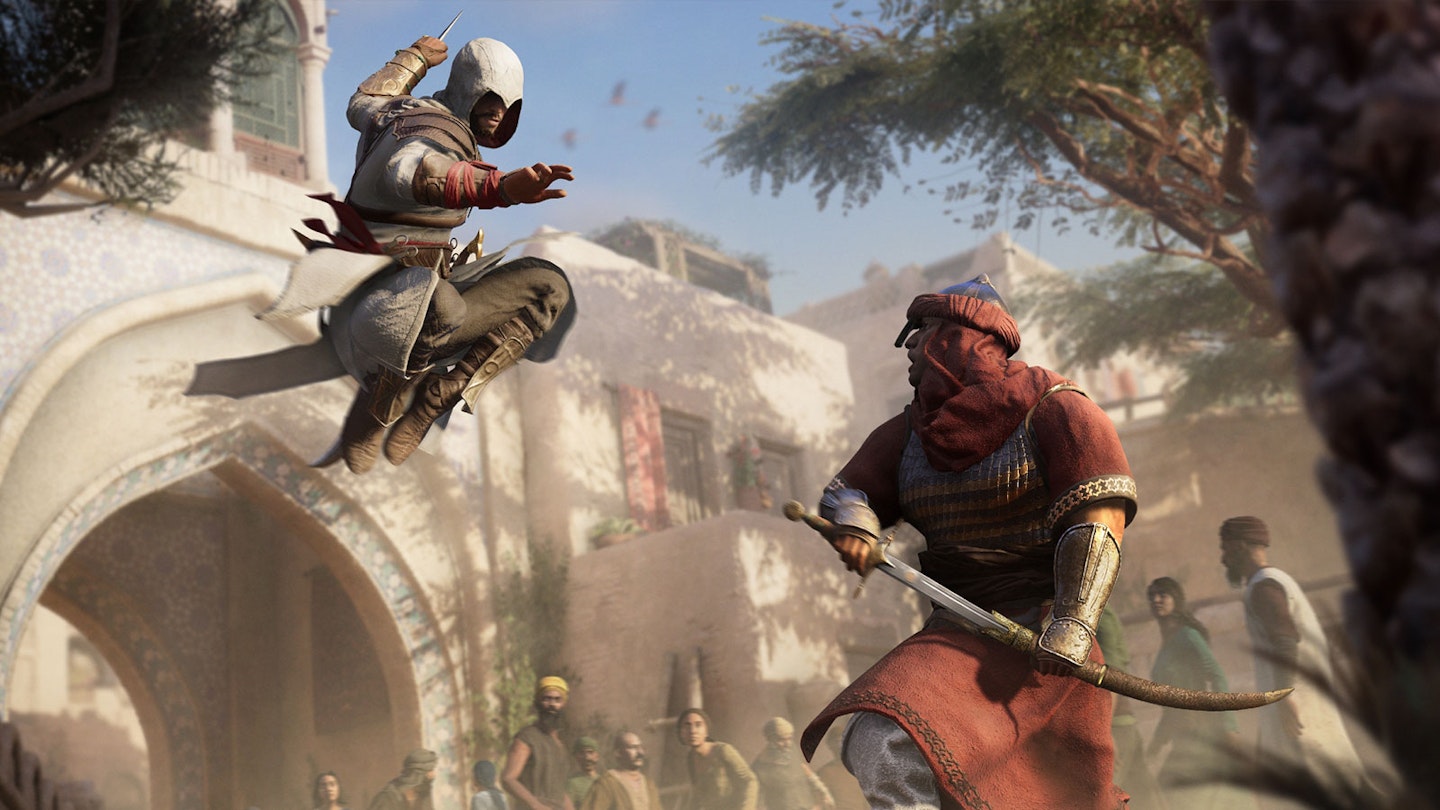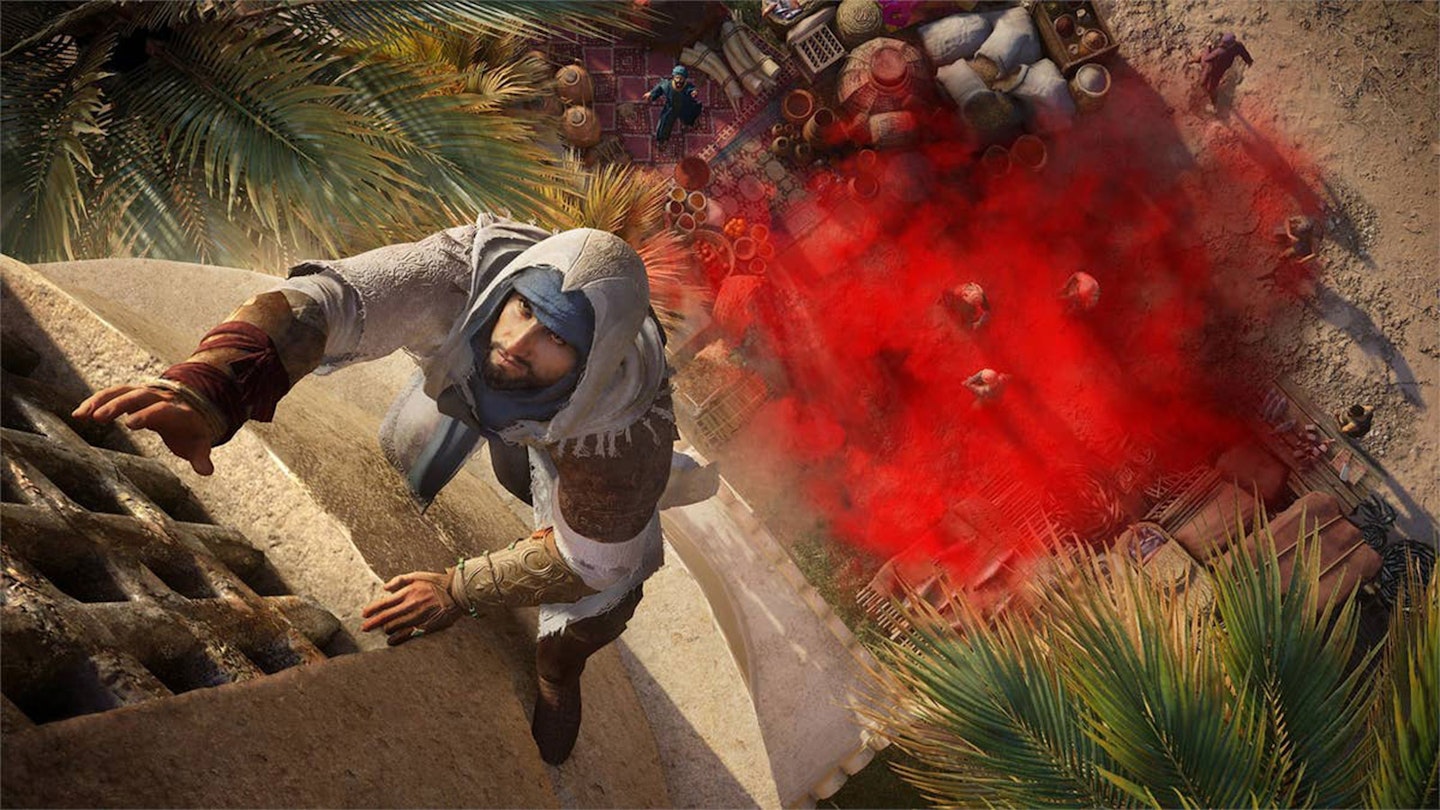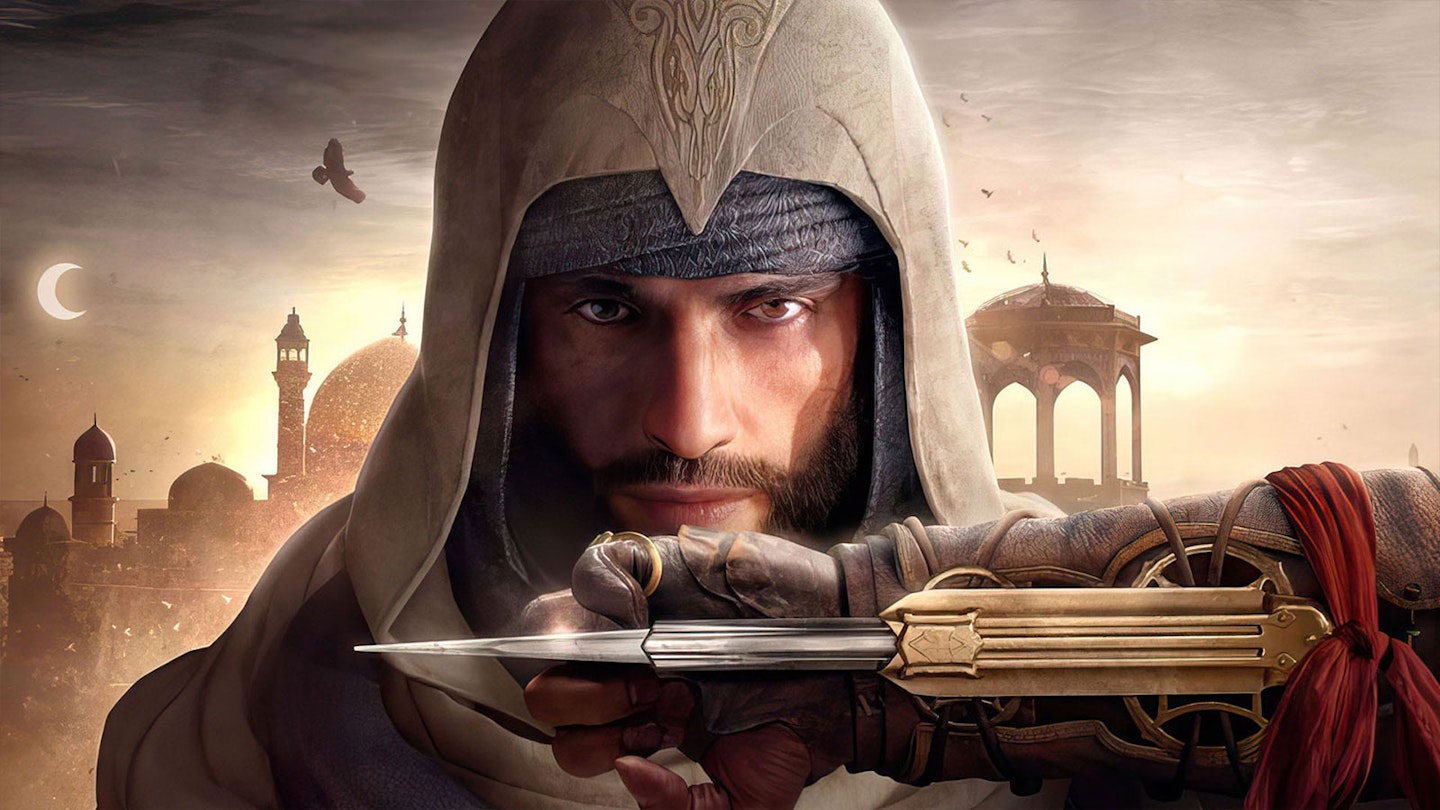Platforms: Xbox Series X|S, Xbox One, PS5, PS4, PC
Assassin's Creed Mirage isn't so much a return to form as it is a return to the series' roots. After several games that saw the venerable stealth-action series evolve into colossal open world action-RPGs – the well-loved Origins, Odyssey, and Valhalla – the latest entry in Ubisoft's historically influenced series scales things back again.
Since the game's announcement, Ubisoft has made no secret that Mirage was going to be smaller than its sprawling predecessors, and it was tempting, at the time, to think that meant it was going to be a stopgap entry. Indeed, it might yet prove to be, once the secretive "Codename: Hexe" and "Codename: Red" entries see the light. But in returning to early staples of the series, Mirage proves a reminder of what made Assassin's Creed great in the first place.
For one, its world is smaller, set in 9th century Baghdad, at the height the Abbasid Caliphate. Yet "smaller" also means "denser", presenting players with an expanse that doesn't feel quite so daunting to explore, but richer for the limited scale. Mirage is full of busy marketplaces and crowded streets; a living, breathing world positively packed with people that feels like a veritable hub of civilisation. There are still many of the hallmarks players have come to expect from the series, from area-scanning synch points and Leaps of Faith into reliable bales of hay, to plenty of side objectives marked on a map to be checked off at will, but it's not all quite so spread out for the mere sake of drawing you to the other side of an implausibly large map.

The bigger shift, though, is in reversing the character and enemy levelling introduced from Origins onwards. Although sections of Mirage's Baghdad are still labelled with difficulty indicators, here you are once again a true assassin – shiv an unsuspecting guard with your hidden blade, and they're going down. For as much as Origins through Valhalla did right, it was always frustrating that you could no longer, well, assassinate enemies. The XP-driven level scaling of those games led to bizarre outcomes like firing an arrow into a foe's skull and their only reaction being to become aware of your presence rather than dying, just because they were 10 arbitrary levels higher than you. In Mirage, that's gone – so long as you don't draw too much attention, you're once again a blade in the darkness, and the game feels better for it.
Fittingly, for a series that plays with real world history, Mirage brings together the past and present of Assassin's Creed, and makes a case for its future.
That's not to say Mirage is entirely ignoring the last few years of Assassin's Creed's own real-world history, though. Mirage's protagonist is Basim, a member of the Assassin Brotherhood players first met back in Valhalla. Here, though, we're meeting him for the first time – not a seasoned, skilled Hidden One, but a rabble-rousing street rat, adopted into the Brotherhood following a heist gone disastrously wrong and rising through its ranks. Given the younger turn for the character here, Lee Majdoub takes over voicing Basim from Valhalla's Carlo Rota, portraying him as an almost Aladdin-esque figure – although this Aladdin is one haunted by visions of jinni, rather than aided by them. Without venturing into spoiler territory, Basim is shaping up to be one of the more important protagonists in the series' grander continuity, so it's fascinating to finally learn his background.

Keeping with the renewed focus on stealth, Basim's journey brings back an element of investigation too. Key targets need to be identified, tracked down, and flushed out, before you can dispatch them. It's here where Baghdad's streets come alive, full of people to overhear, trail for info, or pickpocket key items from. It's refreshing to once more have to really learn about the setting and its inhabitants to progress, making for a world you're far more deeply entrenched in.
And, for fans who perhaps came onboard with the contemporary trilogy, there are still some RPG elements at work here, too. There's a degree of crafting, requiring you to gather upgrade components to enhance weapons, and skill points with which to enhance Basim's abilities – albeit with those points awarded from story progression, rather than from gaining experience points.
Basim has a few new tricks up his sleeve too, most notably Assassin's Focus. Gained during the course of the key missions, this is similar to marking enemies in past games, but with a follow-on that sees our murderous hero taking out his foes in sequence, a flourish of daggers and blood. It's a powerful tool in your arsenal, so it's only appropriate that it takes a good while for Basim's Focus bar to recharge after you unleash it, but it's an awesome addition to the series.
Not all the callbacks or earlier Assassin's Creed games are as welcome, though. The series' parkour navigation now feels slightly stilted, with Basim once again needing exact handholds to clamber up an obstacle. Yes, it's a bit more realistic - the Brotherhood trains mortal assassins, not Spider-Verse extras - but it does make for some awkward escapes from well-guarded locations when you get stuck halfway up a wall. And, while Mirage's return to stealth is welcome, it brings with it a reduction in Basim's arsenal, stripping his weaponry back to dagger and sword. The only ranged attacks are throwing knives, which makes the absence of a bow and arrow keenly felt.
Fittingly, for a series that plays with real world history, Mirage brings together the past and present of Assassin's Creed, and makes a case for its future. With far less bloat, and significantly less back-and-forth to pad the play time out, players are reminded what the appeal was in the first place.
